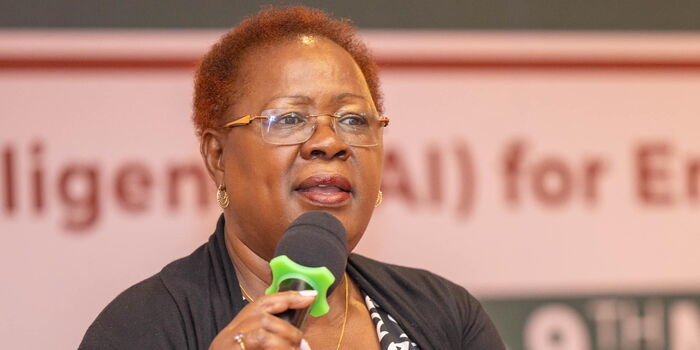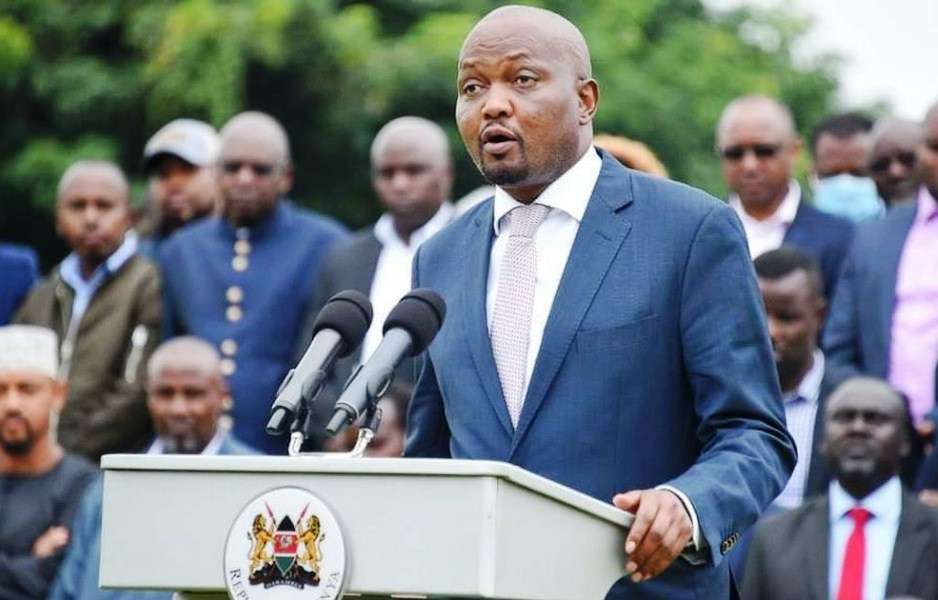Lands Cabinet Secretary Alice Wahome has called on the National Construction Authority (NCA) to enforce stricter regulations on buildings that do not meet constitutional standards for inclusion and accessibility for Persons with Disabilities (PWDs). Speaking at the fifth edition of the International Construction Research Conference and Exhibition (ICORCE) 2024, Wahome emphasized the need for decisive action against contractors who violate these standards, warning that the government will no longer tolerate non-compliant structures.
“We must ensure both existing and new buildings fully adhere to the regulations. The NCA has to be firm in its oversight,” Wahome stated. She also put unscrupulous contractors and professionals on notice, reminding them that construction is a regulated sector and they must uphold the law. She urged professionals to reject projects where owners refuse to follow regulations. “If the project owner won’t let you follow the rules, walk away. The responsibility ultimately lies with professionals on site,” she added.
Nominated Senator Crystal Asige echoed Wahome’s sentiments, highlighting that the problem is not the disability but the lack of accessibility. Senator Asige, who became visually impaired due to glaucoma and was elected in 2022 to represent people with disabilities, called on the construction industry to prioritize universal design standards.
“Imagine being in total darkness. You wouldn’t be able to see, and that would be your barrier. But for me, it wouldn’t be because I’ve adapted. We need to change our mindset and design with inclusion in mind,” Asige said, underscoring the need for the industry to cater to Kenya’s 8.8 million PWDs.
Wahome also raised concerns about overly complex language in contracts and documents, which locks out potential contractors, especially in the tendering process. She advocated for simplifying the process to ensure greater access for all. “We need to reduce human involvement in tendering, not to eliminate jobs, but to combat corruption. Technology can help eliminate these practices, and contracts need to be written in simpler terms,” she explained, calling for reforms to break monopolies in the sector.
Principal Secretary for Micro, Small, and Medium Enterprises (MSMEs), Susan Mang’eni, shared her experience with the challenges of bidding for government contracts before becoming PS. Despite affirmative action policies, her bids were repeatedly disqualified over minor technicalities. Mang’eni highlighted the need for capacity building among young people to help them navigate the tendering process.
“There’s a gap in technical knowledge, and we must empower the next generation to succeed in bidding for contracts,” she said. Wahome further advocated using blockchain technology to streamline contract processes, reducing delays and enhancing transparency. She called for the swift establishment of a legal framework for smart contracts, cautioning that some professionals may resist the change. “There’s no legal barrier for advocates to adopt smart contracts. We must embrace technology to simplify our work,” she noted, pushing for legislative support to adapt to these innovations.
Addressing the threat of climate change, Wahome stressed the need for climate-resilient infrastructure, citing recent losses due to flooding and other climate-related disasters. “Some countries build structures to withstand earthquakes of magnitude seven or higher. We must be bold and professional in our construction approach,” she said.
Mombasa Deputy Governor Francis Thoya announced that the county is developing plans to integrate artificial intelligence (AI) and machine learning in construction, using drones for monitoring and enforcement. With Mombasa experiencing flooding due to climate change, Thoya noted that this technology would help mitigate the impacts.
Principal Secretary for Public Works, Joel Arumonyang, pointed to the persistent issue of unpaid bills in the construction industry and emphasized the need for greater diversity to attract a broader talent pool and make the sector more inclusive.
Maurice Akech, Executive Director of the National Construction Authority, underscored the importance of staying ahead of technological advancements. While AI can boost efficiency, Akech emphasized that human expertise will remain crucial. “You cannot build without research and innovation. If we continue with outdated methods, our profits will shrink,” he said, encouraging the industry to embrace the upcoming National Building Code 2024.





